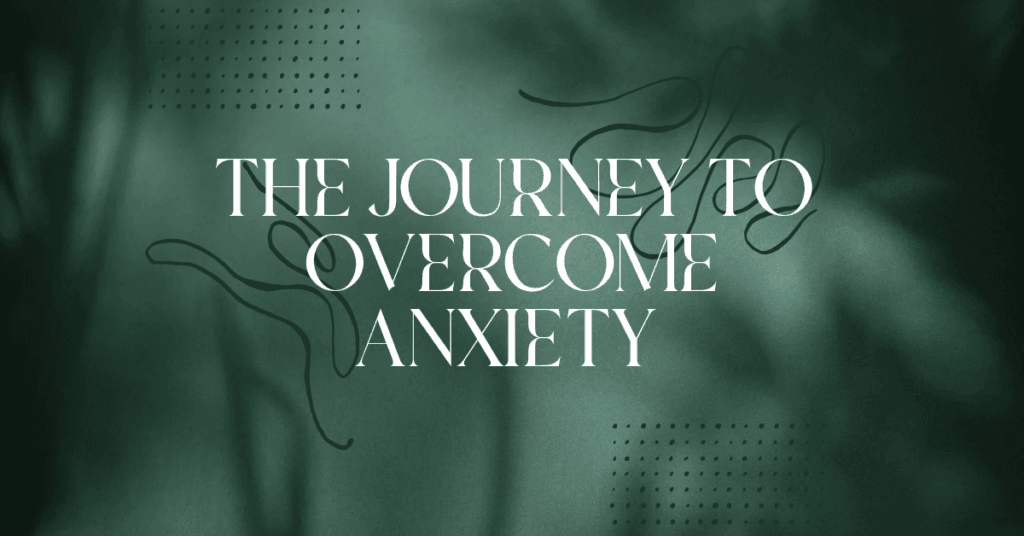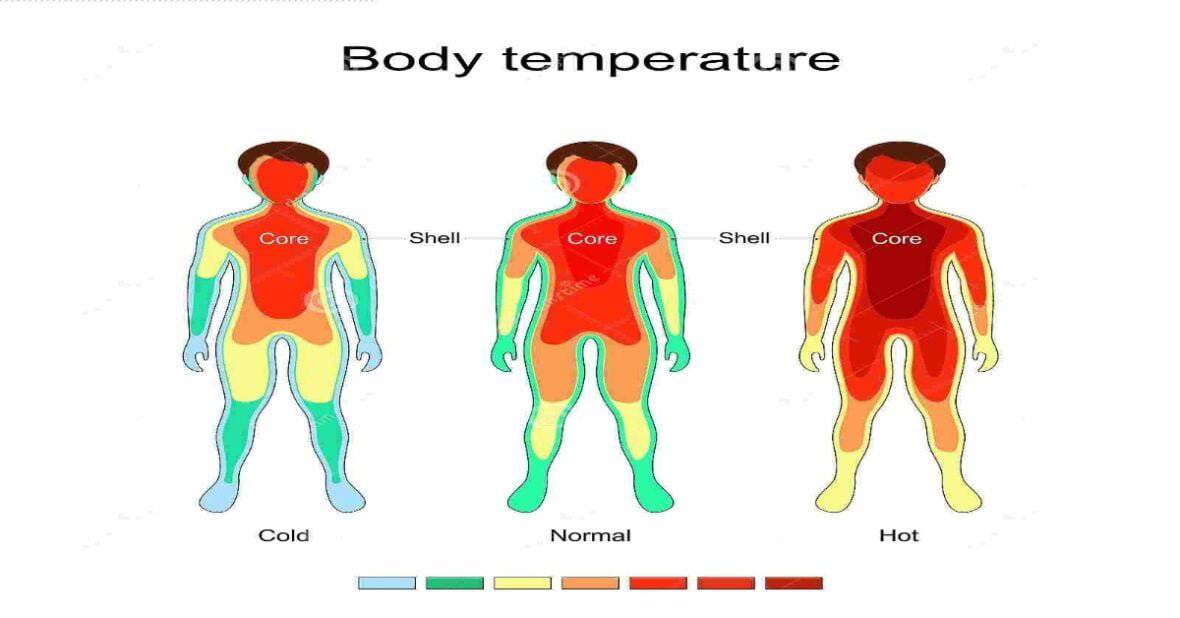
Table of Contents
Anxiety Disorder Natural Remedies: A Journey to Serenity
As you begin exploring natural remedies to manage anxiety disorder, remember that you are not alone. Within this article, you’ll discover a wealth of insights, techniques, and natural remedies for anxiety to help ease the burdens of anxiety and restore balance and serenity in your life.
Understanding Anxiety
A class of mental health diseases known as anxiety disorders are defined by severe, excessive, ongoing worry and fear about commonplace events. These feelings can interfere significantly with daily activities, relationships, and overall quality of life. Anxiety is among the most common ailments that people seek natural remedies for.
Types of Anxiety Disorder
GAD ( Generalized Anxiety Disorder) Individuals with GAD experience excessive worry and anxiety about various aspects of life, such as work, relationships, and health, even when there is no apparent reason for concern. This chronic anxiety can be debilitating and difficult to control.
Panic Disorder: Panic disorder is characterized by recurrent panic attacks—sudden, intense periods of fear or discomfort that peak within minutes. These attacks may include symptoms such as heart palpitations, sweating, trembling, shortness of breath, and feelings of impending doom.
Social Phobia (Social Anxiety Disorder): People with social anxiety disorder experience overwhelming fear and self-consciousness in social situations. They may worry excessively about being judged, criticized, or embarrassed by others, leading to avoidance of social gatherings, work events, or public speaking.
Specific Phobias: Specific phobias involve intense fear or anxiety about a particular object, situation, or activity, such as, fear of heights, spiders, flying, or enclosed spaces are common phobias. People who suffer from particular phobias might do everything it takes to stay away from their triggers.
OCD (Obsessive-Compulsive Disorder): OCD is characterized by intrusive, unwanted thoughts (obsessions) and repetitive behaviors or mental acts (compulsions) performed to alleviate anxiety or prevent perceived harm. Common obsessions include fear of contamination or harm, while compulsions may include excessive handwashing or checking rituals.
PTSD (Post-Traumatic Stress Disorder): PTSD can develop after experiencing or witnessing a traumatic event, such as combat, accident, natural disasters, or physical assault. Symptoms may include intrusive memories, nightmares, flashbacks, hypervigilance, and avoidance of reminders of the traumatic event.
Symptoms of Anxiety Disorder
Numerous behavioral, mental, and physical indicators are indicative of anxiety. The following are a few typical signs of anxiety disorder.
Physical Symptoms of Anxiety Disorder:
Rapid heartbeat
Sweating
Trembling or shaking
Shortness of breath
Dizziness or lightheadedness
Muscle tension or aches
Fatigue or feeling weak
Upset stomach, nausea, or diarrhea
Headaches
Insomnia or difficulty sleeping
Emotional Symptoms of Anxiety Disorder
Excessive worry or fear
Feeling tense or restless
Irritability
Difficulty concentrating
Feeling on edge or keyed up
Anticipating the worst
Feeling detached or disconnected
Fear of losing control or going crazy
Fear of dying
Behavioral Symptoms of Anxiety Disorder
Avoidance of anxiety-provoking situations
Seeking reassurance excessively
Difficulty making decisions
Procrastination
Difficulty concentrating
Restlessness
Hypervigilance
Performing repetitive behaviors (compulsions)
These symptoms of anxiety disorder can vary in intensity and frequency, and not everyone with anxiety experiences all of them. It’s also important to note that experiencing some anxiety in certain situations is normal. However, when anxiety becomes overwhelming, persistent, or interferes significantly with daily life, it may indicate an anxiety disorder that could benefit from professional help or utilizing the anxiety natural remedies mentioned below.
Mind-Body Connection
Anxiety disorders can have profound effects on both mental and physical health, and the link between the two is significant. Here’s how anxiety impacts both:
Mental Health and Anxiety Disorder
Emotional Distress: Anxiety often manifests as persistent worry, fear, or nervousness, leading to emotional distress.
Impaired Cognitive Functioning: Excessive anxiety can impair concentration, memory, and decision-making abilities.
Negative Thought Patterns: It can lead to negative thought patterns such as catastrophizing (assuming the worst will happen) or rumination (repeatedly dwelling on negative thoughts).
Disruption of Daily Life: Severe anxiety can disrupt daily activities, work, relationships, and overall quality of life.
Increased Risk of Mental Disorders: Chronic anxiety increases the risk of developing other mental health disorders such as depression, panic disorder, and obsessive-compulsive disorder (OCD).
Physical Health of Anxiety Disorder
Cardiovascular Effects: Anxiety triggers the body’s “fight or flight” response, leading to increased heart rate, elevated blood pressure, and tense muscles.
Gastrointestinal Issues: Anxiety can cause or exacerbate digestive problems such as irritable bowel syndrome (IBS), stomachaches, or diarrhea.
Immune System Suppression: Long-term anxiety impairs immunity, increasing a person’s susceptibility to diseases and infections.
Sleep Disturbances: Anxiety often disrupts sleep patterns, leading to insomnia or poor-quality sleep, which can further exacerbate anxiety symptoms.
Chronic Health Conditions: Long-term anxiety is associated with an increased risk of developing chronic health conditions such as cardiovascular disease, diabetes, and chronic pain conditions.
Reciprocal Relationship:
There is a reciprocal relationship between physical and mental wellness. Physical health problems can worsen anxiety symptoms, and anxiety can exacerbate physical health issues. For example, someone with a chronic illness may experience heightened anxiety due to the stress of managing their condition, while someone with anxiety may develop physical symptoms like headaches or muscle tension.
Treatment Approach of Anxiety Disorder
Addressing both mental and physical aspects of anxiety is crucial for comprehensive treatment. This often involves a combination of therapies, including cognitive-behavioral therapy (CBT), medication (such as antidepressants or anti-anxiety medications), relaxation techniques, exercise, and lifestyle modifications. Additionally, addressing underlying physical health issues can help alleviate anxiety symptoms.
How Stress Affects the Body
Stress can take many different forms and affect the body in both the short and long term. The following summarizes the effects of stress on various systems:
Central Nervous System:(CNS): Stress hormones like cortisol and adrenaline are released as part of the “fight or flight” response, which is triggered by stress.
In the short term, this response can sharpen focus, increase alertness, and enhance physical performance.
However, chronic stress can lead to constant activation of this response, which can have detrimental effects on the brain, such as memory problems, difficulty concentrating, and mood disorders like anxiety and depression.
Cardiovascular System and Anxiety Disorder
Stress hormones increase heart rate and blood pressure, preparing the body to react quickly.
Chronic stress can contribute to the development of heart disease, hypertension, and other cardiovascular problems over time.
Immune System
Short-term stress can actually boost the immune system, preparing the body to fight off potential threats.
However, chronic stress suppresses the immune system, making individuals more susceptible to infections and illnesses.
Respiratory System
During stress, breathing quickens to supply the body with oxygen.
Chronic stress can exacerbate respiratory issues like asthma and contribute to the development of respiratory infections.
Musculoskeletal System:
Stress causes muscles to tense up in preparation for action.
Chronic muscle tension due to stress can lead to headaches, migraines, back pain, and other musculoskeletal problems.
Digestive System
Stress can influence appetite, causing one to either overeat or undereat.
It can also cause digestive issues like stomachaches, diarrhea, or constipation.
Chronic stress is linked to more serious gastrointestinal problems such as irritable bowel syndrome (IBS) and gastroesophageal reflux disease (GERD).
Reproductive System
Stress can disrupt reproductive hormones, leading to irregular menstrual cycles in women and decreased sperm production in men.
Chronic stress may contribute to fertility issues and sexual dysfunction.
Skin and Anxiety Disorder
Skin disorders including psoriasis, eczema, and acne can get worse when under stress.
It can also slow down wound healing and contribute to premature aging of the skin.
Overall, while the body’s stress response is a natural and necessary survival mechanism, chronic stress can have profound negative effects on physical and mental health. Managing stress through natural remedies such as, relaxation techniques, exercise, and social support is crucial for maintaining overall well-being.
Natural Techniques for Relaxation and Stress Reduction
Deep Breathing: Breathe deeply: Inhale through your nose and exhale through your mouth as you relax or meditate.This can activate the body’s relaxation response and calm the mind.
Common Treatments For Anxiety Disorder
Common treatment for anxiety disorders often involves a combination of psychotherapy, medication, and self-care strategies. Cognitive-behavioral therapy (CBT) is a commonly used therapeutic approach that helps individuals identify and challenge irrational thoughts and behaviors contributing to their anxiety. Medications such as selective serotonin reuptake inhibitors (SSRIs) and serotonin-norepinephrine reuptake inhibitors (SNRIs) may be prescribed alleviate symptoms.
Anxiety Disorder Natural Remedies

Progressive Muscle Relaxation (PMR): Starting from your toes and working your way up to your head, tense each muscle, and then release every muscle group in your body. This relieves tension in the body.
Mindfulness Meditation
Practice mindfulness meditation by keeping your focus on the here and now, judgment-free. You can concentrate on the sounds around you, your breath, or even your physical feelings.
Yoga: Yoga promotes relaxation and lowers stress levels by combining physical postures, breathing techniques, and meditation. A quick yoga practice can have a relaxing impact on the body and mind.
Tai Chi or Qigong: These gentle, flowing movements promote relaxation, reduce stress, and improve balance and flexibility. They also encourage mindfulness and focused breathing.
Aromatherapy: Certain scents, such as lavender, chamomile, and rosemary, have been shown to have calming effects. You can use essential oils, candles, or incense to enjoy the benefits of aromatherapy.
Journaling: Writing down your thoughts and feelings can help you gain perspective, process emotions, and reduce stress. Try keeping a gratitude journal or simply jotting down things that are bothering you.
Listening to Music: Listening to soothing music can have a profound impact on your mood and stress levels. Choose music that you find calming and relaxing, and take time to really listen and immerse yourself in the sound.
Spending Time in Nature: Spending time outdoors, whether it’s going for a walk in the park or simply sitting in your backyard, can help reduce stress and promote relaxation. Nature possesses the ability to relax the mind and uplift the soul.
Social Support: Don’t underestimate the power of talking to a friend, family member about what’s stressing you out. Simply sharing your feelings with someone you trust can provide immense relief and support.
Try out these anxiety disorder natural remedies to see which one suits you the most, and always keep in mind that consistency is essential. Including relaxation techniques in your daily routine can enhance your general wellbeing and help you handle stress more effectively.
Anxiety Disorder Can be Exacerbated by Diet
Diet can play a role in managing anxiety. While it’s not a standalone solution, maintaining a balanced diet can support overall mental health. The following dietary advice might be useful:
Balanced Meals: Aim for balanced meals that include a variety of nutrients such as complex carbohydrates, lean proteins, healthy fats, vitamins, and minerals. These nutrients help stabilize blood sugar levels and promote overall well-being.
Omega-3 Fatty Acids: Include foods high in omega-3 fatty acids, like walnuts, chia seeds, salmon, and flaxseeds. Omega-3 fatty acids have been connected to happier and less anxious feelings.
Limit Caffeine and Alcohol: High intake of caffeine and alcohol can exacerbate anxiety symptoms. Limit your consumption of caffeinated beverages like coffee and energy drinks, and be mindful of alcohol intake.
Reduce Sugar Intake: Excessive sugar consumption can lead to blood sugar spikes and crashes, which may worsen anxiety symptoms. Opt for natural sources of sweetness like fruits and limit intake of processed foods and sugary snacks.
Stay Hydrated: Dehydration can contribute to feelings of anxiety and stress.
Avoid Skipping Meals: Skipping meals can lead to drops in blood sugar levels, which may trigger feelings of anxiety and irritability. Try to eat regular nutrient rich meals and to maintain energy levels.
Magnesium-Rich Foods: Magnesium deficiency has been linked to increased anxiety levels. Consume foods high in magnesium, such as legumes, whole grains, nuts, and seeds, along with leafy greens.
Probiotics: Some research suggests that gut health may influence mood and anxiety levels. Incorporating probiotic-rich foods like yogurt, kefir, sauerkraut, and kimchi may help support a healthy gut microbiome.
Remember, while dietary changes can be beneficial, they work best when combined with other anxiety management strategies such as regular exercise, stress reduction techniques, adequate sleep, and seeking support from a mental health professional if needed. Seeking individualized counsel from a registered dietitian or healthcare practitioner is always a good option if you have specific dietary issues or medical conditions.
By incorporating these lifestyle modifications into your routine, you can better manage anxiety and improve your overall well-being. Remember that finding the right combination of strategies may require some experimentation, so be patient and persistent in your efforts.
Herbs For Anxiety Disorder
Herbal remedies have been used for centuries to help manage anxiety. While they might not be as potent as prescription medications, many people find them helpful for mild to moderate anxiety. Here are some popular herbal remedies for anxiety:
Chamomile: Chamomile has calming properties. It can be consumed as a tea or taken in supplement form to help reduce anxiety symptoms.
Lavender: Lavender is often used in aromatherapy techniques to help people unwind and manage stress. Diluting lavender essential oil with a carrier oil allows it to be rubbed or diffused.
Passionflower: Passionflower has been used traditionally to treat anxiety and insomnia.
Valerian Root: Known as a natural sleep aid, but it may also help reduce anxiety symptoms. It’s available in supplement form, often combined with other calming herbs.
Balm: Lemon balm is a member of the mint family and has calming effects.
Ashwagandha: A stress relieving adaptogenic herb
aids the body in managing stress.
Kava: Kava is a plant native to the South Pacific that has been used traditionally to promote relaxation. It’s available in supplement form but should be used with caution due to potential liver toxicity.
Rhodiola Rosea: Rhodiola is an adaptogenic herb that may help the body adapt to stress and reduce anxiety symptoms. It’s available in supplement form.
St Johns Wort: A stress relief supplement that promotes positive outlook.
Before trying any herbal remedy for anxiety, it’s essential to consult with a healthcare professional, especially if you’re currently taking medication or have underlying health conditions. While herbal remedies are generally considered safe, they can still interact with medications and may not be suitable for everyone.
It’s essential for individuals experiencing symptoms of anxiety to seek natural remedies before relying on medication that mask symptoms. By following the natural remedies above, you’ll be better equipped to start your healing journey.
Foods That Help Reduce Anxiety
Several foods are known for their potential to help manage anxiety. These include:
Fatty Fish- Rich in omega-3 fatty acids, which have been linked to lower levels of anxiety.
Green Tea- L-theanine, an amino acid found in green tea, has a relaxing impact on the brain.
Yogurt- Probiotics in yogurt may improve gut health, which is increasingly linked to mood regulation.
Dark Chocolate- Contains flavonoids, which can help improve mood and reduce stress.
Turmeric- Contains curcumin, which has been shown to reduce symptoms of anxiety and depression.
Whole Grains- Complex carbohydrates can help regulate serotonin levels, promoting a sense of well-being.
Leafy Greens- High in magnesium, which may help alleviate anxiety symptoms.
Brazil Nuts- A high source of selenium, which can help reduce anxiety.
Pumpkin Seeds- Rich in magnesium, which is linked to lower anxiety levels.
Incorporating these foods into your diet, along with maintaining a balanced and healthy lifestyle, can contribute to better management of anxiety symptoms.
Incorporating these foods into your diet, along with maintaining a balanced and healthy lifestyle, can contribute to better management of anxiety symptoms. However, it’s essential to remember that diet is just one aspect of anxiety disorder management, and it’s important to consult with a dietician for personalized advice.
Conclusion
Consistency is key when it comes to treating anxiety disorder with natural alternatives. Try to incorporate these practices into your daily routine, even if it’s just for a few minutes at a time. Over time, you may notice a reduction in anxiety and an increased sense of Serenity and well-being.
Resources
https://www.mayoclinic.org/diseases-conditions/generalized-anxiety-disorder/expert-answers/herbal-treatment-for-anxiety/faq-20057945 Herbal remedies for anxiety disorder.
https://pmc.ncbi.nlm.nih.gov/articles/PMC2959081 Nutritional and herbal supplements for anxiety.
https://www.aafp.org/pubs/afp/issues/2007/0815/p549.html Dietary Supplements for Treatment of Anxiety Disorders.
https://pubmed.ncbi.nlm.nih.gov/19123457 Natural remedies for anxiety disorders.
We’d love to here from you! Have you tried any of these natural remedies for anxiety disorder? Share your experience in the comments below.



